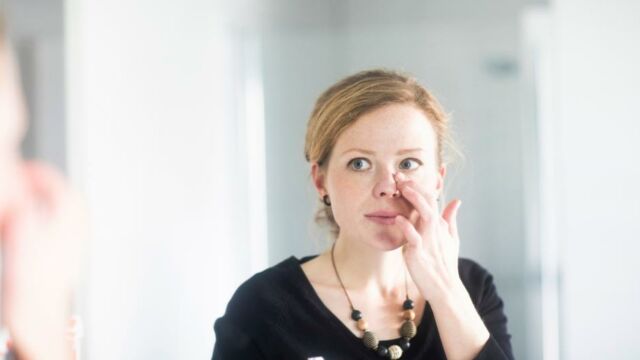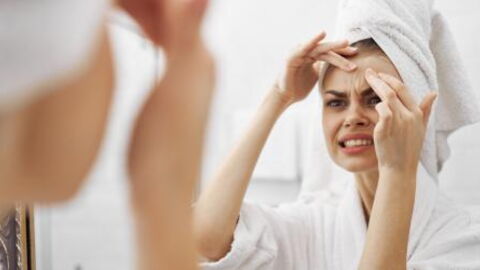The coronavirus has been officially been declared a pandemic by the WHO. With quarantines, travel restrictions and social distancing now in place, the whole country has been put on pause to prevent the spread of the disease.
Discover our latest podcast
While some people don't leave their homes for fear of catching the virus, others do but protect themselves by wearing masks or even bags over their heads. But there are simple hygienic measures that can act as a barrier to COVID-19.
Putting on makeup before washing your hands
Although applying makeup without first washing your hands is generally not recommended, it is even more problematic during a pandemic. Before applying any product on your face, you have to wash your hands, and if you can, use makeup brushes, as everything we touch is likely to be contaminated.
Foundation, lipstick, eyeshadow... All these products can be applied using a previously cleaned tool rather than a finger, because the virus can survive up to 24 hours on cardboard and up to several days on iron or plastic, according to a study in The New England Journal of Medicine.
Touching your skin or blemishes with unclean hands
According to a study by the National Center for Biotechnology Information, on average, we touch our face more than 500 times a day. Your skin, nose, eyes, mouth - any part of your face, really - are all gateways for the virus.
Also, if you wear contact lenses, we advise you to switch to glasses during this time to avoid rubbing your eyes and coming into contact with your mucous membranes.
If you get a pimple on the tip of your nose during this time, and can't get yourself to leave it alone, use a napkin to touch it. In fact, people who are prone to imperfections are advised to limit contact between their mobile phone and their face, and this especially applies during epidemics. Phones are covered in germs. They're almost constantly in contact with your hands, which may have touched contaminated objects. So we advise you to make your calls with a hands-free kit to avoid having your potentially contaminated phone on your cheek.
Going out with your hair down
As pretty as it may be to have long hair that sways from right to left when you walk, we advise you to wear your hair up as much as possible. In public transit, at the movies, in restaurants or beauty salons... Your hair is constantly in contact with fabrics or people. If it's long, it'll tend to wander everywhere and can, unfortunately, sweep over spots that are infected with COVID-19. So we advise you to shampoo more often and wear your long hair in a ponytail when you're in public spaces.















